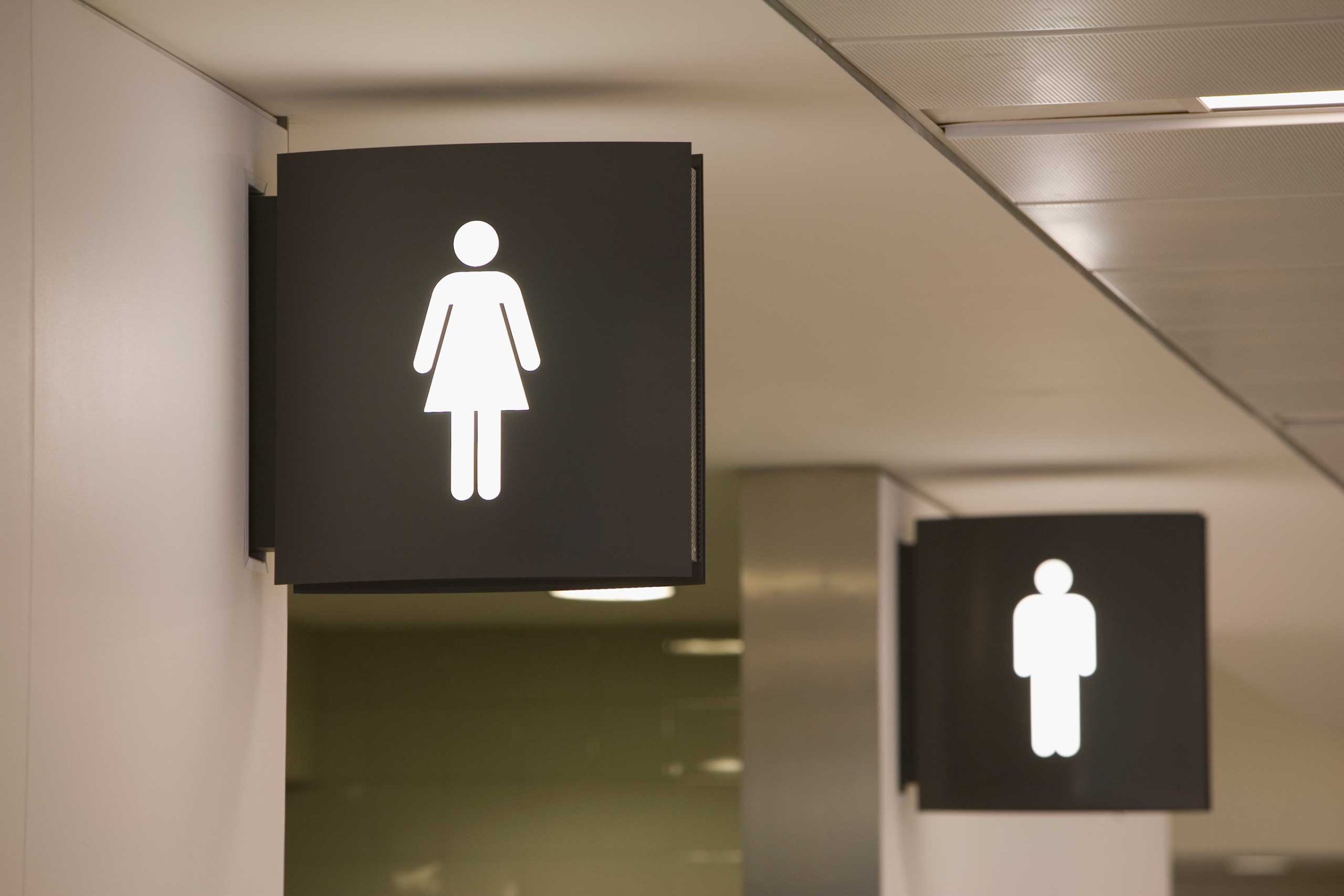
Last year, after contentious public hearings and several votes, Atherton High School in Louisville, Ky., adopted a controversial policy allowing students to use sex-segregated school facilities like bathrooms based on their gender identity. That school council meeting was the first to draw any public speakers in five years, and the fight it kicked off didn’t stop that night. Upset parents complained and tried, unsuccessfully, to repeal the measure. Now Republican state lawmakers are picking up the baton, backing a bill that would require students in Kentucky to use the facilities that correspond to the sex listed on their birth certificate.
At a time when the U.S. Supreme Court appears poised to make marriage equality the law of the land, so-called “bathroom bills” that target transgender people have emerged as one of the most contentious remaining battlegrounds over LGBT rights. Kentucky’s bill has passed the Republican-controlled Senate and is set to be considered by the Democrat-controlled House, though the leadership is unlikely to take it up. In Florida, a House committee passed a bill on March 4 that would make it a misdemeanor for anyone to knowingly enter a bathroom that didn’t match the sex on their driver’s license or passport. “There is a culture of fear around bathroom use,” says Teagan Widmer, a transgender woman who runs an app called Refuge Restrooms, which maps gender-neutral restrooms around the world. “It’s fear that drives the legislation.”
Proponents of the measures say they are about safety. State Rep. Frank Artiles, the sponsor of the Florida bill, has argued that the bill is necessary to prohibit voyeurism and rape. In the bill he sponsored, Kentucky State Sen. C.B. Embry wrote: “Parents have a reasonable expectation that schools will not allow minor children to be viewed in various states of undress by members of the opposite biological sex.” If Embry’s bill does manage to pass the House and become law, students would be able to sue their schools for $2,500 if they encountered a person of the opposite biological sex in the bathroom.
Opponents say these concerns unfounded and dismiss the bills as solutions in search of a problem. “It’s always a transgender person who is at far greater risk of being attacked in a bathroom,” Maryland State Sen. Richard Mandaleno told TIME in an interview for a previous story, when organizers in his state were pushing a similar bill in 2014. “There’s always this parade of outlandish consequences that are going to occur that never do.”
These bathroom bills come as advocates for LGBT rights are pushing non-discrimination bills in at least 10 states, including Florida. Many aim to protect lesbian, gay, bisexual and transgender people from being fired, denied housing or turned away from a business because of their sexual orientation or gender identity. The Florida bill, called the Florida Competitive Workforce Act, is built around the argument that policies need to be as inclusive as possible for the state to attract top workers and businesses. A coalition backed by major corporate entities, including Marriott and Walt Disney World Resort, has formed to support the measure.
Currently 18 states have laws protecting people from discrimination based on either their sexual orientation or gender identity; three more states cover just sexual orientation. Ian Palmquist, a director at the Equality Federation, a national group that helps support state-level policy change, says Pennsylvania and North Dakota may pass non-discrimination bills this session. And he points to a non-discrimination measure recently introduced in Utah as evidence of a turning tide: it’s backed by a faith coalition that includes the Mormon church, a group that was instrumental in passing California’s now-defunct ban on gay marriage in 2008.
“There have been years of work that have led up to this,” Palmquist says of the bill announced March 4. “It’s a historic step to have a relatively conservative denomination like the Mormon church taking a stand and saying LGBT people should be treated fairly and equally.” The bill includes religious exemptions that would not hold churches or other religious organizations to the same bar as private businesses or individuals when it comes to employment and housing.
Supporters are also trying to further transgender rights in other arenas. A California bill would prohibit the state from doing business with companies that deny transgender workers benefits like healthcare coverage. A Rhode Island bill would prohibit conversion therapy that seeks to change the gender identity or sexual orientation of any resident under the age of 18. A measure in Illinois would secure a deceased transgender person’s right to have a funeral that respects their preferred “appearance, chosen name, and gender pronouns.”
And advocates like Widmer are doing what they can for transgender people outside the statehouse. She recalls sex-segregated bathrooms being traumatizing places when she began her transition from appearing male to appearing female. “In a woman’s restroom I might get called a man and yelled at, but while using a men’s restroom I might get called a faggot or a tranny and then beaten up,” she says. “It doesn’t seem like a controversial issue to me, it’s pretty simple. People need to pee.”
Photos: 25 Transgender People Who Influenced American Culture

























More Must-Reads from TIME
- Donald Trump Is TIME's 2024 Person of the Year
- Why We Chose Trump as Person of the Year
- Is Intermittent Fasting Good or Bad for You?
- The 100 Must-Read Books of 2024
- The 20 Best Christmas TV Episodes
- Column: If Optimism Feels Ridiculous Now, Try Hope
- The Future of Climate Action Is Trade Policy
- Merle Bombardieri Is Helping People Make the Baby Decision
Contact us at letters@time.com